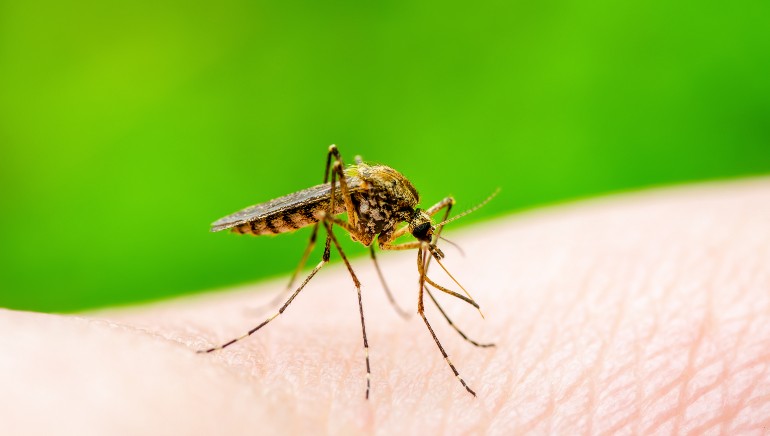Chat with ![]()
Chat with ![]()

Dengue is a viral infection that gets transmitted to humans when an infected mosquito bites them. The blood-sucking insects can easily breed in hot and humid climate. So, even if you feel hot, wear loose-fitting tops with long sleeves and pants. Many dengue infections may cause only mild illness, but sometimes, they can be more severe, and even lead to death. After getting infected, you will deal with high fever, rash, and headache. Even after recovery, you may experience side effects like fatigue, muscle pain, and joint pain. Dengue can also affect your brain! Read on to know the dengue side effects on the brain.
Dengue, a viral disease spread by mosquitoes like Aedes aegypti, causes high fever, severe headache, muscle and joint pain. These symptoms, if they occur, usually begin 4 to 10 days after the infection, according to the World Health Organization. Belonging to the Flaviviridae family, the virus has four serotypes — DENV-1, DENV-2, DENV-3, and DENV-4.
Dengue can sometimes affect the brain. Encephalopathy and encephalitis are the most common neurological complications of dengue, and their prevalence has been estimated to be between 0.5 and 6.2 percent, according to a research published in Current Neurology and Neuroscience Reports in 2022.
It presents as altered consciousness resulting from shock, cerebral edema and associated electrolyte imbalance and metabolic derangement. The treatment is largely supportive, which means it involves maintaining fluid balance, correcting electrolyte imbalance, and addressing the metabolic derangement, explains neurologist Dr Prashant Makhija.
Caused by brain inflammation or swelling from the virus, it leads to fever, headaches, and seizures. It is a condition that results from direct infection of the neurons by the virus. The treatment is again supportive care.
Intracranial hemorrhage or intracranial bleed is bleeding within the skull, which results from low platelet counts. It causes severe headaches and loss of consciousness, and requires bleeding management and supportive care.
It is an autoimmune reaction that damages the nerves after a person gets infected. It can lead to weakness and even paralysis. It can be treated with immunotherapy, which means using intravenous steroids, along with supportive care.
Acute disseminated encephalomyelitis is an inflammation of the brain and spinal cord following infection. It causes headaches, confusion, and seizures, and is treated with corticosteroids and immunotherapy, says the expert.
These dengue side effects on the brain are relatively rare, but can be severe.
Yes, dengue fever can potentially lead to mental health issues such as anxiety and depression, though it is not a direct consequence of the virus itself, says the expert. The physical toll of dengue, including prolonged illness, fever, pain, and fatigue, can contribute to emotional distress. For some people, the stress of managing dengue symptoms, uncertainty about recovery, and concerns about potential complications may exacerbate existing mental health conditions or trigger new ones. Also, the impact on daily life, including work, social activities, and personal routines, can further strain mental well-being.
Dementia is an illness that affects memory, thinking, and a person’s ability to perform daily activities. The risk of dementia was found to be 2.23-fold higher in people with dengue, according to a 2021 study published in the Journal of Infection. The connection between dementia and dengue is not entirely understood, but it may involve chronic inflammation and damage to brain cells caused by the viral infection, says Dr Makhija.
To avoid neurological complications of dengue, it is crucial to prevent dengue infection in the first place. This includes taking measures such as using mosquito repellent, wearing protective clothing, and eliminating mosquito breeding sites, says the expert. For those infected with dengue, early diagnosis and appropriate medical care can help reduce the risk of severe complications. Ensuring adequate hydration, monitoring for warning signs, and seeking prompt medical attention if symptoms worsen are essential steps in managing dengue effectively.
Even though it is relatively rare, dengue fever can impact your brain. You may end up with dengue encephalopathy or Guillain-Barré syndrome, which is a neurological complication of dengue.
Get latest updates on health and wellness along with Preventive Care, Family Care, Reproductive Care, Self Care

